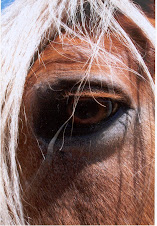Recently, I watched the movie “Julie and Julia,” about a young woman who pledges to cook every recipe in Julia Child’s book “Mastering the Art of French Cooking.” She gives herself a year to accomplish this task, meaning 536 recipes in 365 days. The movie was fun, and if you haven’t seen it, I recommend it.
I commend the woman in the story for her perseverance in the task. Personally, I would have a few obstacles on this type of journey:
What do I do with the leftovers? If I cooked 536 recipes in 365 days, that would mean cooking something new every day. In the movie, it was just her and her husband eating these meals. Of course they had the occasional dinner party, but as a matter of day-to-day eating, that’s a lot of food. My refrigerator isn’t very big. Where will I put all the foil covered plates, Ziploc bags and Tupperware?
Who will do all the dishes? We never see her or her husband doing dishes in the movie. We see scenes of her in the kitchen, but never piles of pots and pans stacked up in the sink. And we know she didn’t have domestic help because that was part of the charm of Child’s book, which was written for women who did not have servants. My problem is, I can’t cook in a dirty kitchen. Before I start any cooking endeavor, I must clean all the counters and do the dishes.
With 536 recipes, there must be a few that will not appeal to everyone. Do you make those anyway? What about allergies? Personally, I’m allergic to hard-shell seafood. Do I still need to make the lobster dishes?
How do I find all those fancy ingredients? This woman lived in New York and had numerous markets to shop from. Here in the northland, if they don’t have it at the local grocery store, I’m out of luck. Though during the summer, the local farmer’s markets are a good source for some unusual finds. I have yet to see live lobster or whole ducks.
When my grandmother passed away, I inherited her collection of church cookbooks. It would be interesting to try this challenge with one of them. These recipes are “old school.” They call for things that are not commonly found in today’s kitchens such as lard and sorghum. Quite a few of these women cooked like my mother did, adding a “pinch” of this or a “smidgeon” of that. They also gave instructions like “cook until done,” or “add spices to taste.”
I took a sentimental journey through grandma’s Country CookBook from the Halfway Creek Lutheran Church, 1971.
The first recipe in the book is for rommegrot, which is comprised of rich cream, milk, salt and flour. Then there’s Berline kranser with the only ingredients being butter, sugar, flour and egg yolks. This recipe is supposed to make over 100 cookies. After these delicacies comes brabakkels with eggs, sugar and brandy (add a bit of flour to roll out thin). I’m starting to see a pattern here.
I flipped the pages to the main dish section to find a collection of recipes for casseroles, hot dishes and meat loaf. A recipe called 7-course dinner includes potatoes, carrots, hamburger, onion, rice and tomatoes all combined into a casserole.
The salad section includes a lot of fruit, jello and cottage cheese.
This is a far cry from “Mastering the Art of French Cooking.” It’s more like “Mastering the Art of Blocked Arteries.”
However, my grandmother used the cookbook (I know this by the pencil notes she wrote in the margins and the extra sheet of paper that fell out listing her favorite recipes from the book and their page numbers), and she lived to be 98 years old. I’ll never know if she tried every recipe, but I thought of her fondly when I came upon the recipe for fruit soup. When I was young, fruit soup was a traditional dish my grandmother served. My sister and I hated fruit soup, but my mother always made us eat some so we wouldn’t offend grandma. I won’t be making that recipe.
The last pages are a compilation of “household hints.” I will leave you with this piece of old-country wisdom: “A banana and the white of an egg, beaten until stiff, make a good substitute for whipped cream.”
Bon appétit.
Subscribe to:
Post Comments (Atom)





No comments:
Post a Comment